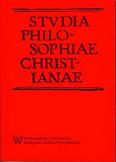Drażliwość i krytycyzm. O roli filozoficznej krytyki w kulturze i edukacji
Touchiness and criticism. On the role of philosophical criticism in culture and education
Author(s): Robert PiłatSubject(s): Philosophy, Ethics / Practical Philosophy, Social Philosophy
Published by: Wydawnictwo Naukowe Uniwersytetu Kardynała Stefana Wyszyńskiego w Warszawie
Keywords: criticism; values; modern subject; irony; touchiness;education;
Summary/Abstract: In this article, I discuss the social phenomenon of touchiness (excessive sensitivity to differences of opinion and life-style) as a result of the polarization of discourse in contemporary Western culture. This polarization and the resulting touchiness are partly due to the way in which discourse is organized, but they also reflect structural problems in our cultures as well as social practices. Touchiness arises from the dense network of potentially conflicting values. I discuss some diagnoses of this phenomenon and some purported philosophical remedies, including a departure from the language of values and abandoning the idea of a strong subject of action and beliefs. I criticize these solutions and I propose the idea of a radical criticism instead. I introduce this idea with reference to established theories of philosophical criticism, including the theories proposed by Horkheimer, Spaemann, and Habermas. I also suggest a practical application of the idea of radical criticism in education: i.e., promoting philosophical inquiry in the classroom.
Journal: Studia Philosophiae Christianae
- Issue Year: 54/2018
- Issue No: 2
- Page Range: 5-29
- Page Count: 25
- Language: Polish

